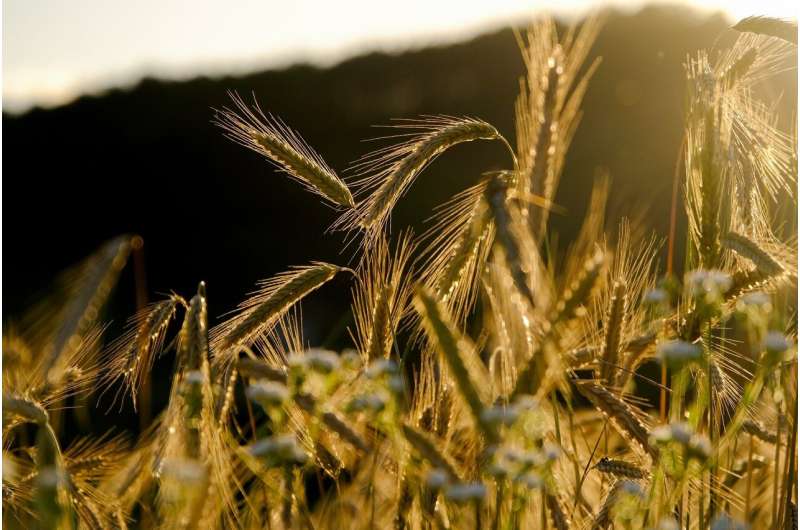This article has been reviewed according to Science X's editorial process and policies. Editors have highlighted the following attributes while ensuring the content's credibility:
fact-checked
trusted source
proofread
Study reveals fewer mold toxins in organically grown grain, compared to grain grown conventionally

An international meta study reveals that there may be less of certain mold toxins in organically grown grain, compared to grain grown in the conventional manner. This, and other findings from research into agricultural products, can have major consequences.
"Up until now, the general assumption has been that grain grown using organic methods is more contaminated with mold toxins than grain grown in the conventional way and contaminated grain can pose a health risk to humans.
"An extensive meta analysis published in Comprehensive Reviews in Food Science and Food Safety, demonstrates the opposite," says professor Per Ole Iversen.
He is one of two scientists from the Department of Nutrition at UiO who participated in the study. Carlo Leifert, professor of organic agriculture and currently a guest professor at the Institute of Basic Medical Sciences, also both initiated and participated in the study.
Several advantages to organic farming
Iversen is the representative of human medicine in the research group and believes that the study is greatly strengthened by being interdisciplinary. "The meta study we have just published makes it clear that organic methods of cultivation do not lead to a higher incidence of mold in crops than conventionally grown grain, and to some extent, the opposite is the case: for two types of mold, there was no difference."
In addition, the study has also revealed a number of advantages linked to organic cultivation.
"Research into organically grown foods has been carried out for many years and many people believe that this type of cultivation is good for both livestock and farmers—and for human health—but we were not quite sure about the latter.
"Now it looks as if organically grown fruit and vegetables have a more favorable content of antioxidants and micronutrients than agricultural products produced in the conventional way, and this can be good for both you and me," says Iversen.
Surprising findings on mold
Iversen believes that the study will have major consequences.
"The myth that organic cultivation has a higher risk of being affected by mold has now been largely refuted. In any case, it should not weaken the message that organic food production is to be recommended," says Iversen, adding that these findings are very surprising and have weight, since they are based on a large number of well documented findings from different parts of the world.
Students and pregnant women are included in the study
Iversen and his colleagues have previously conducted a randomized, clinical study among university students, where they also found that organically grown food is advantageous compared to agricultural products cultivated in the normal way.
"We are currently carrying out a new randomized study, which examines two groups of pregnant women: one group is eating organic food while the other is eating ordinary food during pregnancy. We will then carry out a thorough study of the effect of the organic food intake on both mothers and babies for two years following each baby's birth," he explains.
Per Ole Iversen played two roles in the extensive meta study. "I participated in the selection of the studies to be included. In addition, I contributed with reflections from a doctor's point of view on what kind of consequences the study could have for the health of ordinary people."
More information: Juan Wang et al, Mycotoxin contamination in organic and conventional cereal grain and products: A systematic literature review and meta‐analysis, Comprehensive Reviews in Food Science and Food Safety (2024). DOI: 10.1111/1541-4337.13363
Provided by University of Oslo





















